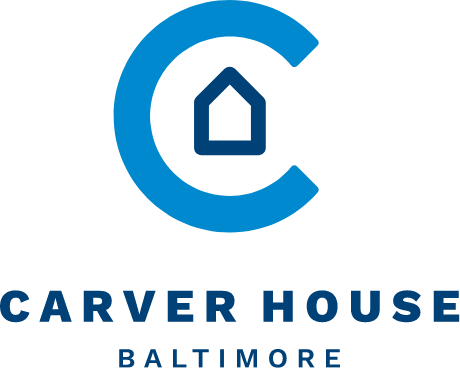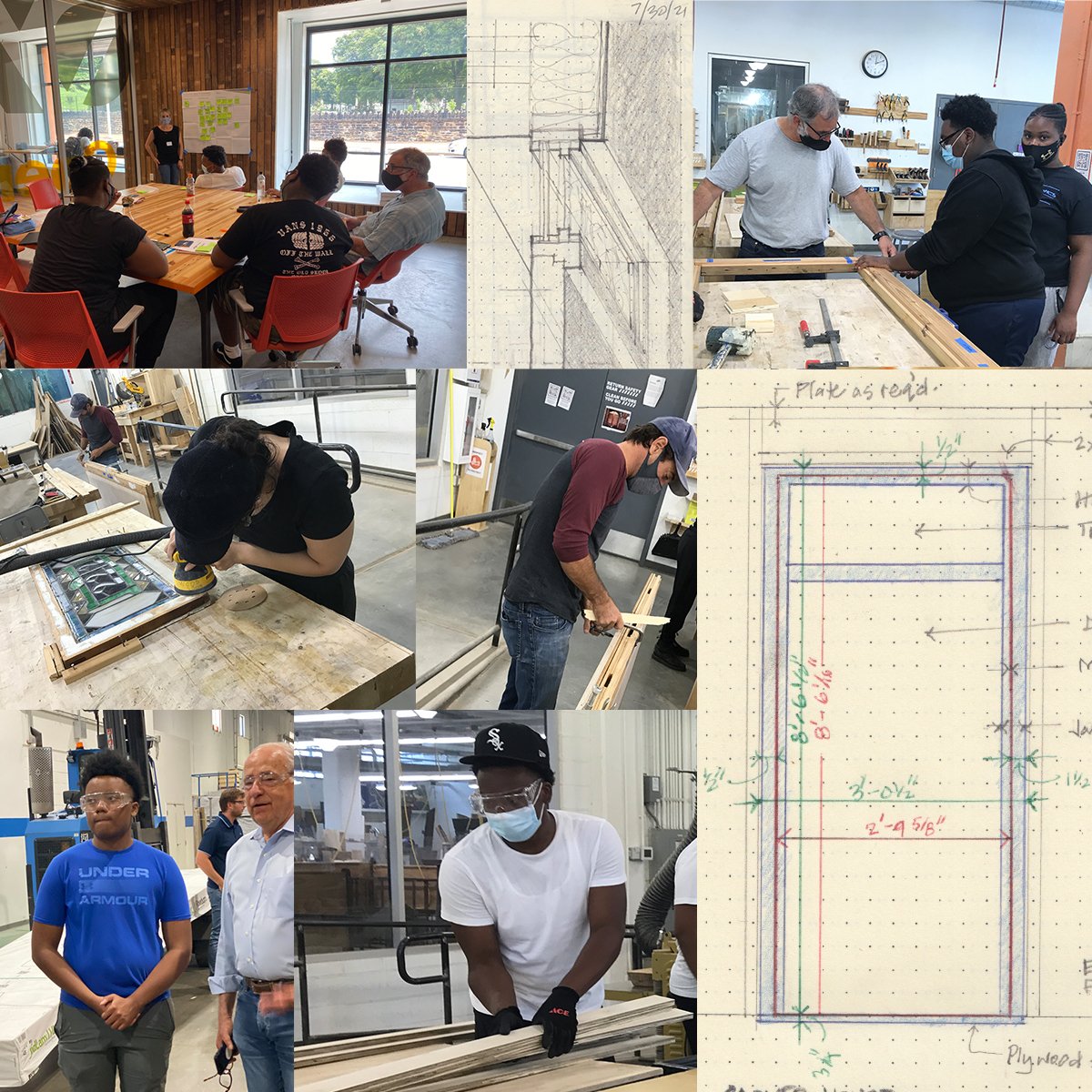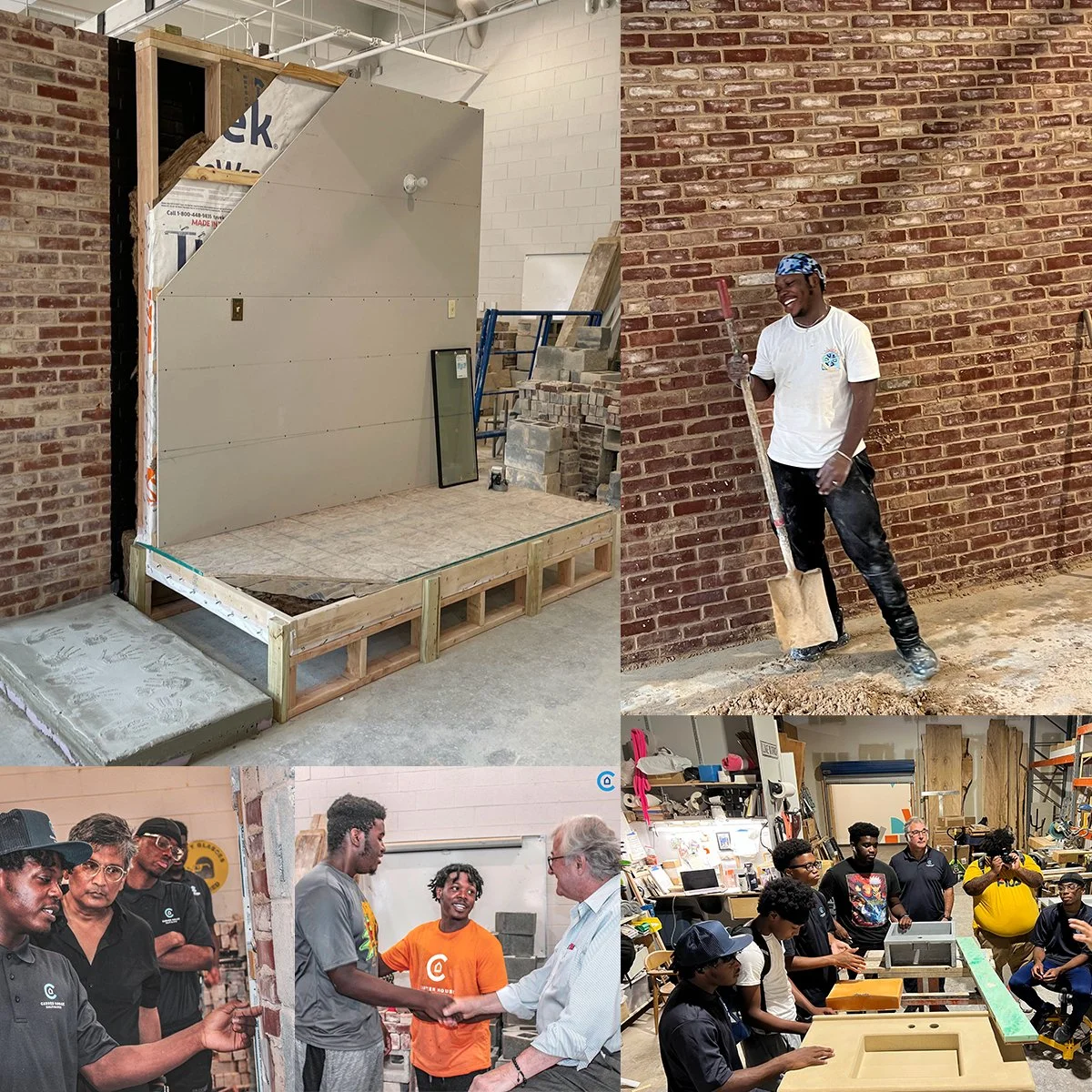Carver House
Partnering with faculty at neighboring Carver Vocational-Technical High School, the Secondary Success and Innovation Department of Baltimore City Public Schools, local and national leaders, and neighborhood residents, Carver House augments existing vocational education with an interdisciplinary, energy-efficient building construction curriculum, designed to bridge the gap between classroom theory and real-world practical experiences through the research, design, renovation and ultimately ownership transfer of Carver House.
Renovation of Carver House will provide specialty knowledge and work-based learning for students. By applying classroom lessons to authentic work, students in carpentry, electrical, masonry, interactive media, business, and HVAC will be trained, experienced, and prepared to join a specialized workforce for the emerging low-carbon emissions building industry through apprenticeship and pathway programs.
The Carver House program is also aiming to implement a construction standard that produces exceptionally energy efficient, virtually airtight houses where minimum energy is used for heating and cooling, curbing climate-related emissions while saving residents up to ninety percent in heating and utility costs.
Utilizing these trade skills will benefit the neighborhood residents through affordable housing and a healthier indoor environment. Sustainable building science will contribute to our environmental focus of reducing emissions from energy consumption and improve storm-water management. Our ultimate goal is to produce a skilled and employable construction workforce to satisfy the labor needs in Baltimore and beyond.
87 Students
have contributed to the Carver House program from 2020-2024.
Carver House Projects
The Door Project 2021
In 2021, Requity secured a grant to teach students how to build energy-efficient passive house doors, emphasizing the benefits of Passive House Design. Students gained practical skills in product design and fabrication through an eight-week program, resulting in the creation of a door for the Carver House project. This initiative served as a pilot program to integrate an energy-efficient building curriculum in Baltimore’s vocational schools, fostering collaboration among students in various trades. Requity plans to market the doors created, using profits to support further development of the vocational program while continuing collaborations for future projects with organizations like YouthWorks.
Passive home design is critical in providing affordable housing and environmentally sustainable building practices.
Passive House Wall 2022
Nine students from three Baltimore City public high schools completed a comprehensive five-week program during the summer, centered on designing and constructing a model high-performance residential wall. The curriculum combined theoretical teaching with hands-on experience in passive house construction, specifically applied to the Carver House remodel. The wall assembly involved masonry techniques like cinder block layout, mortar mixing, carpentry for insulation and service cavity, electrical wiring, and the application of moisture-preventative sheathing. Soft skill development, field trips to net-zero homes, and workplace simulations rounded out the program, connecting academic learning to practical, real-world applications in green building.
Students also engaged in soft skill building including mock workplace rehearsal, communication, leadership and presentation modules.
Carver Hut 2023
An expansion of the Passive Wall 2022 project, the Carver Hut is building science training for the Carver House on a smaller scale. Students from masonry, carpentry, electrical, and business trades are collaborating with teachers, staff, partners, and volunteers to build three additional highly insulated walls, add insulated flooring, install a high-performance door and window, and erect the roof with a solar PV system. Once complete, the Carver Hut will be utilized to teach testing processes for passing high-performance building standards.
13 students from three Baltimore City High Schools learned and applied building science principles to construct the Carver Passive Hut in Carver’s masonry lab.
Upcoming Projects
Requity Products
EV Project 2024
Green Lab














